Articles & Papers
-
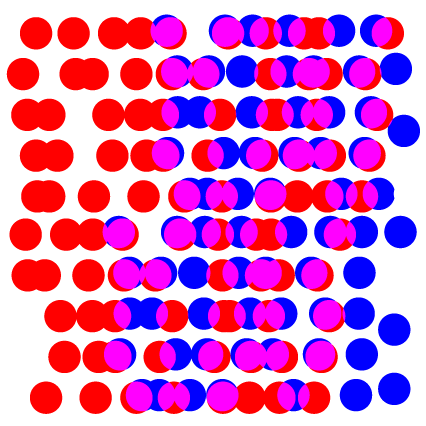 Mimicry of Marginality. On Masking Hegemonic Positions Through Discourse
Mimicry of Marginality. On Masking Hegemonic Positions Through DiscourseIn recent decades, the history of social movements has been characterized by discursive struggles for the attention to (intentionally) overlooked social positions of subjects and their actual or imagined membership in groups marginalized by and in mainstream discourses. Warnke, Ingo H., Bonacchi, Silvia & Seiler […]
-
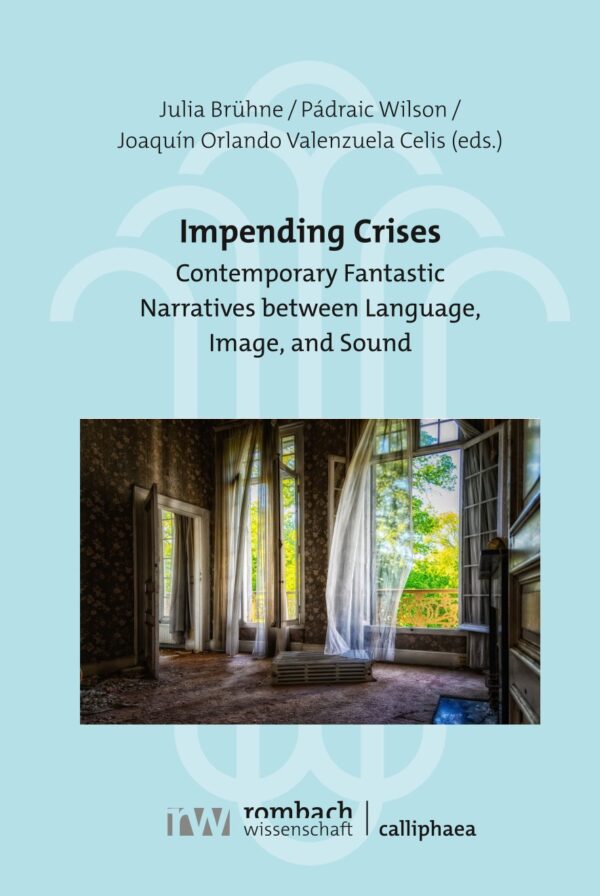 Between Fantasy and Horror: La nuée (2020) by Just Philippot as a Film about the Ecological Crisis of the Anthropocene
Between Fantasy and Horror: La nuée (2020) by Just Philippot as a Film about the Ecological Crisis of the AnthropoceneThis contribution deals with the contradictions of nature and agricultural economy in the contemporary moment of crisis in the Anthropocene. It is based on an analysis of the fantastic French film La nuée (The Swarm) by Just Philippot who reflects by this film also on the turning points from the preception of reality to obsession and from the uninjured body to the damaged body, or even from live to death resepctiveley from live instinct to death drive.
-
 Staged Dissent – »Change My Mind« as a Vehicle of Instrumental Deliberation within the Identitäre Bewegung Österreich
Staged Dissent – »Change My Mind« as a Vehicle of Instrumental Deliberation within the Identitäre Bewegung ÖsterreichIn this paper Jonas Trochemowitz and Lara Herford aim to analyze the talking format of Change my Mind by Steven Crowder and its adaptation by the former spokesperson of the right-wing extremist group Identitäre Bewegung in Austria. By employing the concept of ›genre of dissent‹ we ask the question how democratic values of deliberation are strategically used to gain legitimacy for far right positions in discourse.
-
 Towards Equity and Decolonization? An Introduction into the Blog Debate on the World Health System after the Pandemic
Towards Equity and Decolonization? An Introduction into the Blog Debate on the World Health System after the PandemicThe COVID-19 pandemic exposed systemic problems in the global health system. It revealed that the global health system perpetuates global health inequalities rather than effectively reducing them: The international community, particularly the countries of the Global North, failed to make COVID-19 vaccines widely available to the populations of the world’s poorest countries. This blog debate takes stock of the reform debate about a just and decolonizing transformation of the health system. Bringing together scholars from various disciplines, the contributions of this debate ask what a fair global health system could look like and what role the law plays in it.
-
 »Everything a Learner Needs« – Constructions Of Linguistic and Social Marginality/Centrality In Discourses about (German) Language Learning and Multilingualism
»Everything a Learner Needs« – Constructions Of Linguistic and Social Marginality/Centrality In Discourses about (German) Language Learning and MultilingualismThe paper deals with discursive portrayals of language learning and language learners. In a combination of quantitative and qualitative approaches, it asks whether the status of the language learner is constituted as a phenomenon of marginality or of centrality in current discourses in Germany, and […]
-
 Decolonization Through Decolonial Reforming
Decolonization Through Decolonial ReformingThe need for reform of the global health system is openly on the table. Many stakeholders agree that the WHO has not been able to adequately address the political and social problems, global health emergencies triggered or exacerbated by epidemics and pandemics, malnutrition, and access to clean water in recent years. Against this backdrop, there is a widespread call for more equity and solidarity in the global health system.
-
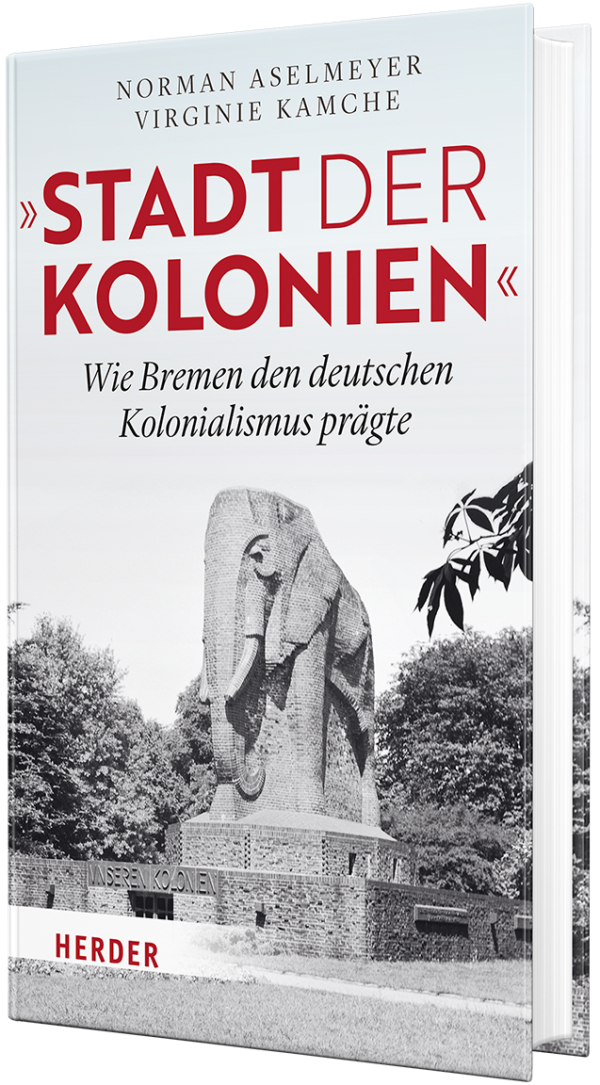 Die Überseestadt: Spiegel kolonialer Verhältnisse
Die Überseestadt: Spiegel kolonialer VerhältnisseThe Bremen Überseestadt, constructed as a new harbor between 1875 and 1913, reflects the close connections between harbor infrastructure and European colonialism. The increase in cargo handling, particularly of colonial commodities, necessitated new port facilities and the deepening of the Weser River. Despite its transformation into a modern urban area, the colonial past remains inadequately addressed to this day. The text calls for making the colonial entanglements visible as an integral part of Bremen’s trade history.
-
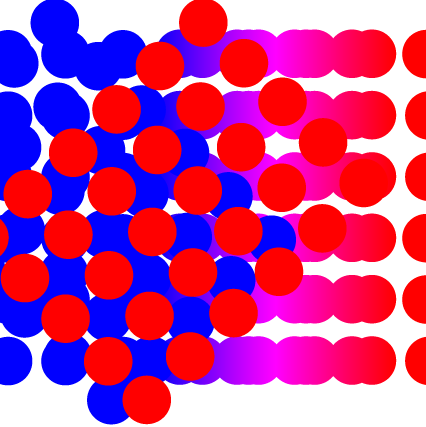 Transnational-Resilient Democracy. On the Conditions for Party Ban Proceedings in Interlegal Systems
Transnational-Resilient Democracy. On the Conditions for Party Ban Proceedings in Interlegal SystemsOn 13.11.2024, a group of 113 members of the German Bundestag tabled a motion to initiate proceedings to ban the Alternative for Germany (AfD) party. The debate to date has focused on the requirements and prospects of success of a (partial) ban of the party from a constitutional perspective (in particular here and here). The national perspective threatens to distort the view of transnational interlegalities and does not do justice to the state of European integration.
-
 Die Zeit in ihrer Vielfalt denken – Anmerkungen aus philosophischer Perspektive
Die Zeit in ihrer Vielfalt denken – Anmerkungen aus philosophischer PerspektiveCorona infections, childhood memories, presidential elections, avalanches: everything we experience and witness and all external events can be ordered in time – according to their succession. Time is therefore an ordering parameter, or dimension, of events. There is disagreement about what else time is on the “battlefield of eternal disputes” – as Kant once called philosophy (or more precisely: metaphysics): Is time relative or absolute? Is it continuous or discrete? Is it a substance in its own right or is it constituted by relationships between events?
-
 Paradoxien des Auditiven? Ambiguitäten und Diskrepanzen beim Hören und in der Musik
Paradoxien des Auditiven? Ambiguitäten und Diskrepanzen beim Hören und in der MusikIn the psychology of music and basic auditory research, there is talk of “paradoxes of hearing” or “musical paradoxies” (Deutsch 1986, 275-280; Utz 2015, 22-52; Deutsch 1995). But can auditory impressions really be paradoxical? What exactly should it mean what exactly should it mean to “hear paradoxes” or even to “hear paradoxically”? We will pursue this question in the following and in doing so, we will first define the concept of paradoxia for the present context – namely in the sense of ambiguity and discrepancy ambiguity and a discrepancy. We will then develop a typology, which at the same time shows the fundamental significance that ambiguities have for music – or more precisely: for the enduring appeal of pieces of music.
-
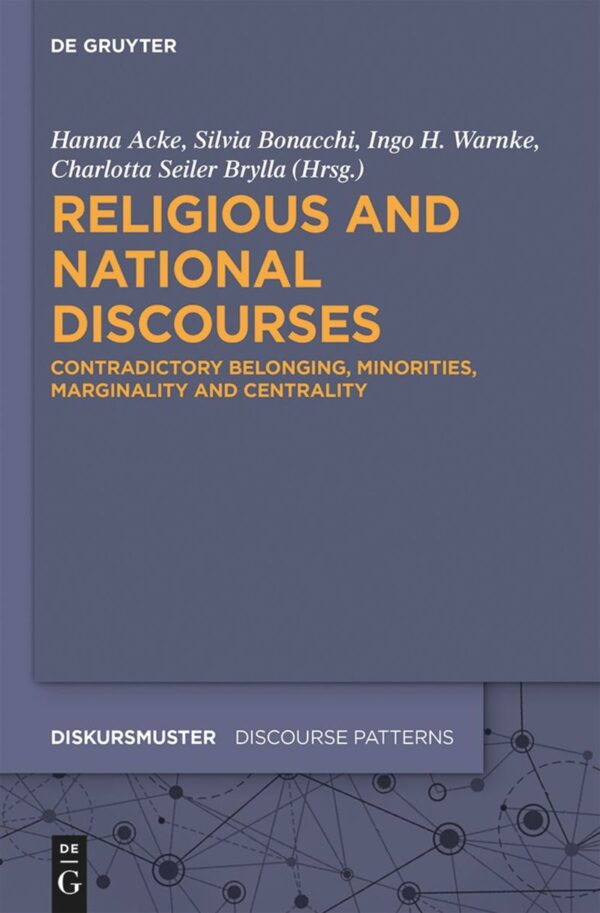 Minorities and Majorities, Marginality and Centrality. An Introduction
Minorities and Majorities, Marginality and Centrality. An IntroductionIn Hanna Acke, Silvia Bonacchi, Carsten Junker, Charlotta Seiler Brylla & Ingo H. Warnke (eds.), Religious and national discourses. Berlin/Boston: de Gruyter Volume 33 in the Series Diskursmuster/ Discourse Patterns eBook ISBN: 9783111039633 PrintISBN: 9783111027739
-
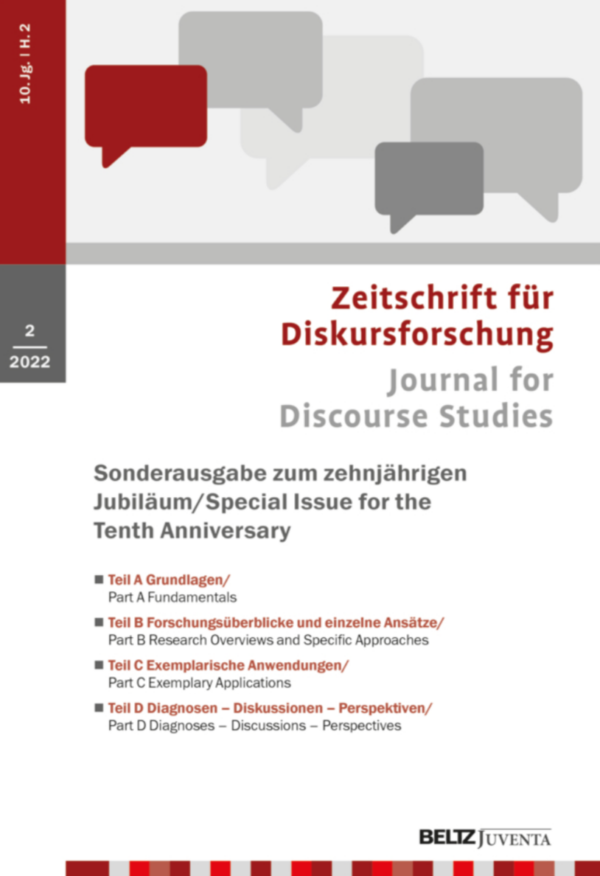 Mythos Zuhören – Bemerkungen zur Diskursphänomenologie gerichteter Aufmerksamkeit
Mythos Zuhören – Bemerkungen zur Diskursphänomenologie gerichteter AufmerksamkeitBased on the omnipresence of euphemistic talk about listening, the essay examines the network of relationships between listening and discourse. A widespread myth, in which listening is understood in isolation as a replicative action and the imponderables of listening are systematically covered up, is contrasted with the assumption that listening is language in contradiction and as such constitutive for discourse and vice versa. The question is about the possibilities of a sociolinguistics of listening and in particular about a conceptual classification of listening in the field of tension between the positivity of speech and the intentionality of listening. I speak of discourse phenomenology, without overlooking the fact that this also breaks up a scientific-historical juxtaposition of discourse analysis and phenomenology.
-
 Making a Theme Audible. Imparting Non-Discursive Knowledge in Natural Philosophy by Means of Poetry and Aphorism
Making a Theme Audible. Imparting Non-Discursive Knowledge in Natural Philosophy by Means of Poetry and AphorismThis paper is about poetry as a vehicle for imparting knowledge in natural philosophy. It discusses the epistemological and cultural background against which early Greek thinkers such as Parmenides and Empedocles composed in verse, and it explores the rationale why poetry was thought to be a preferred means for transmitting important and often non-discursive knowledge about nature—in other words, how poetry was meant to make “a philosophical theme audible,” to prompt an insight that organizes a large field of experience. Much later, related assumptions find a (last) heyday in Goethe’s attempt to write a Naturgedicht in the vein of Lucretius. Even though new insights especially from classical German philosophy influenced Goethe, his reasons for writing nature poetry show striking continuities with those of his ancient peers. The paper ends with a brief look at later attempts to “make philosophical themes audible” in the context of an ever-increasing fragmentation of knowledge.
-
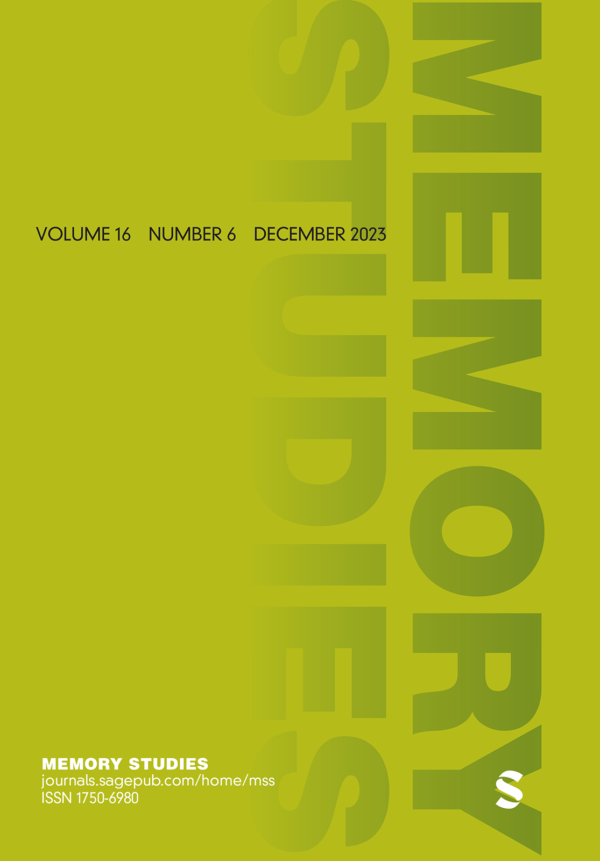 Why Collective Memory can never be Pluriversal. A Case for Contradiction and Abolitionist Thinking in Memory Studies
Why Collective Memory can never be Pluriversal. A Case for Contradiction and Abolitionist Thinking in Memory StudiesBringing together memory studies with the emerging field of contradiction studies, in this article, I suggest the need for an alternative way of thinking about collective memory by juxtaposing the ideal of wholeness that necessarily underlies any group’s identity with that of the inevitable contradiction of the plurivers. I discuss the power of the Western narrative order in regard to the Haitian Revolution and examples of mnemonic disharmony in contemporary Germany and seek to illuminate the epistemic violence constitutive of this narrative order. The article therefore interrogates memory study’s epistemological foundation and the practices in which these underpinnings result. The aim is to highlight the potential of contradiction in an attempt to pluriversify responses to the past as well as future visions for the worlds we live in. Special attention is paid to the question of what it is we hope for when attempting to (scholarly) contribute to making collective memory more inclusive, and where the limitations of this might lie. The purpose of my contribution, then, is to explore the tacit imperative of harmony that often remains unchallenged in memory studies, and to propose a shift in focus, from the ways in which memory might help us understand (e.g., current clashes of identities), toward a research agenda that is considerate of its own entanglements with power, yet, at the same time, lives up to its potential to contribute to transformation.
-
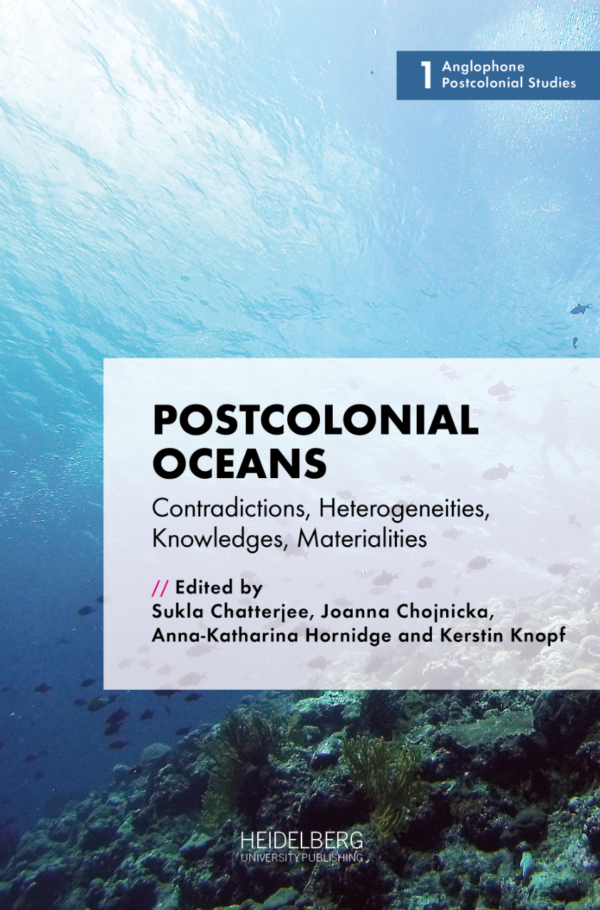 Introduction. Postcolonial Oceans. Contradictions, Heterogeneities, Knowledges, Materialities
Introduction. Postcolonial Oceans. Contradictions, Heterogeneities, Knowledges, MaterialitiesIn Chojnicka, Joanna & Hornidge, Anna-Katharina & Knopf, Kerstin & Chatterjee, Sukla (eds.) Postcolonial Oceans: Contradictions, Heterogeneities, Knowledges, Materialities, 1-19. Heidelberg: Heidelberg University Publishing. DOI: 10.17885/heiup.1046.c17297
-
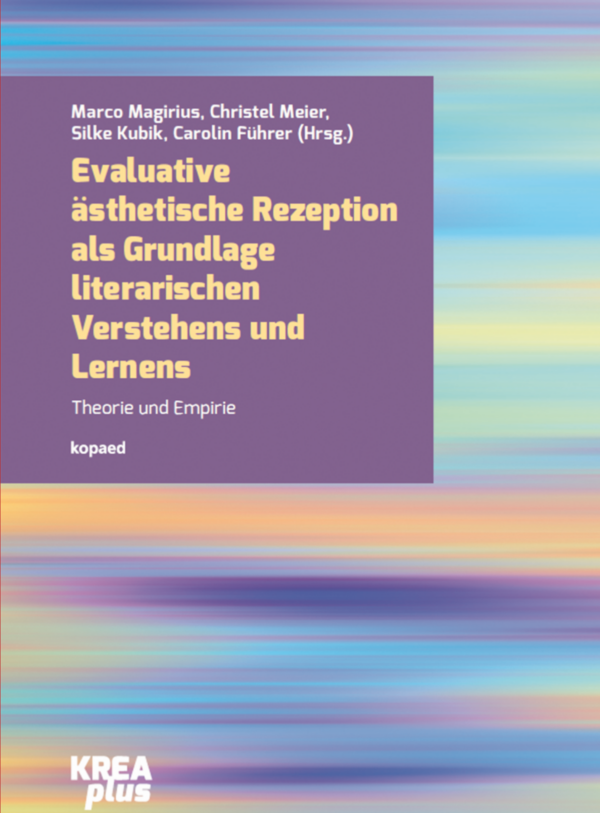 Gänsehaut, Liebe und Langeweile. Sprachliche Konstitution von Emotionen in Laienbuchrezensionen aus dem Schullektürekanon
Gänsehaut, Liebe und Langeweile. Sprachliche Konstitution von Emotionen in Laienbuchrezensionen aus dem SchullektürekanonIn Meier, Christel, Carolin Führer, Marco Magirius & Silke Kubik (eds.) Evaluative ästhetische Rezeption als Grundlage literarischen Verstehens und Lernens: Theorie und Empirie (KREAplus Band 28) 243–256. Muenchen: kopaed. ISBN: 978-3-96848-095-4
-
 The Colonial Making of Bremen’s Peri-Urban Port Area
The Colonial Making of Bremen’s Peri-Urban Port AreaIn Chojnicka, Joanna & Hornidge, Anna-Katharina & Knopf, Kerstin & Chatterjee, Sukla (eds.) Postcolonial Oceans: Contradictions, Heterogeneities, Knowledges, Materialities, 219-236. Heidelberg: Heidelberg University Publishing. DOI: 10.17885/heiup.1046.c17310
-
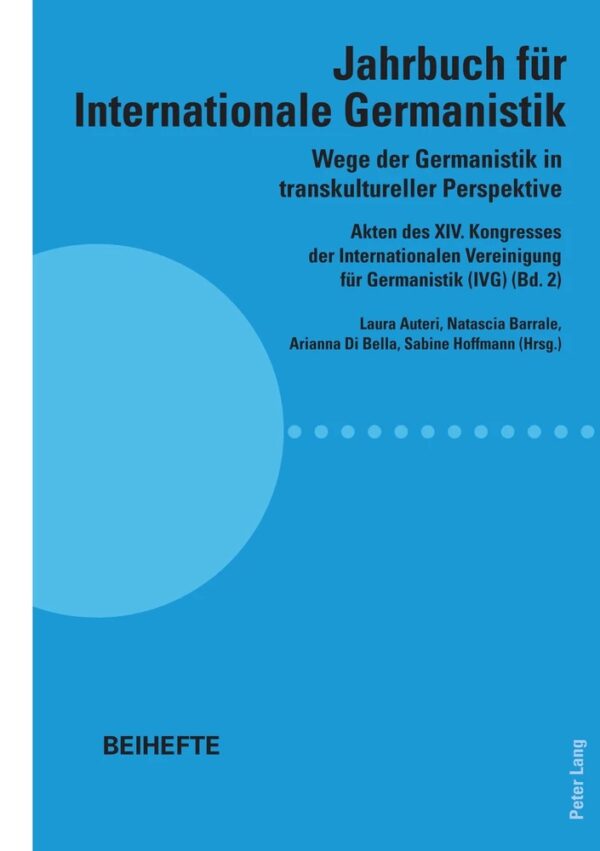 Digitale Räume als Aushandlungsort für Zentralität und Marginalität
Digitale Räume als Aushandlungsort für Zentralität und MarginalitätIn Auteri, Laura, Natascia Barrale, Arianna di Bella & Sabine Hoffmann (eds.) Jahrbuch für internationale Germanistik. Wege der Germanistik in transkultureller Perspektive. Akten des XIV. Kongresses der Internationalen Vereinigung für Germanistik (IVG) 6: 511-515. Bern: Peter Lang Verlag.
-
 Agency and Incentives of Diasporic Political Influencers on Facebook Malawi
Agency and Incentives of Diasporic Political Influencers on Facebook MalawiThis article examines the agency and incentives that drive the activism of diasporic political influencers on “Facebook Malawi,” an online imagined political community. In their seminal work on “social media dissidents” and “social media self-made activists” in the Global South, Matsilele and Sharra demonstrate that social media activists engage with different strategies to initiate movements, mobilize citizens, and create their brands in strong opposition to authoritarian regimes which repositions them as freedom fighters in the eyes of the masses and enemies of the state. Correspondingly, we frame diasporic political influencers as actors aided by digital technologies who engage in “long-distance nationalism” on Facebook against authoritarianism in the homeland. We deploy a qualitative mixed methods approach to analyze Facebook data of two diasporic political influencers, Onjezani Kenani and Manes Winnie Hale, who gave informed consent to use their Facebook data generated in 2018 and 2021, a period preceding and following the 2019 Malawi tripartite elections. A thematic analysis of 250 Facebook posts and interview data with the two influencers illustrates how they exercise their agency in their quest for a vision of a better Malawi while navigating a complex and ambivalent web of online and offline threats, incentives, and interests. Implicated in the political communication and mobilization of the two are different strategies that include verbal inventiveness, trolling, and exposing. The article also shows how the concept of long-distance nationalism needs to be adapted in studying diasporic political influencers.
-
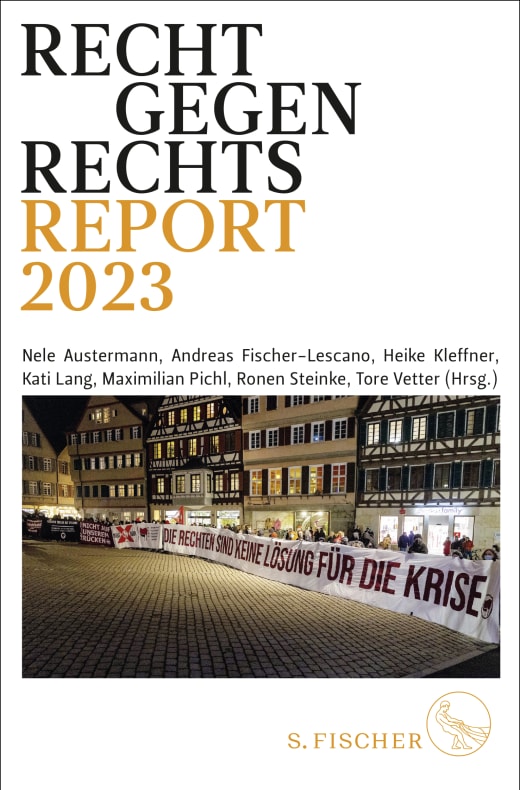 Babycaust? Keine Volksverhetzung! Die deutsche Justiz versagt bei der Bekämpfung von Holocaustverharmlosung und Aufstachelung zum Hass
Babycaust? Keine Volksverhetzung! Die deutsche Justiz versagt bei der Bekämpfung von Holocaustverharmlosung und Aufstachelung zum HassIn Nele Austermann, Andreas Fischer-Lescano, Heike Kleffner, Kati Lang, Maximilian Pichl, Ronen Steinke, & Tore Vetter (Hrsg.), Recht gegen rechts, 307–314. Frankfurt am Main: S. Fischer.